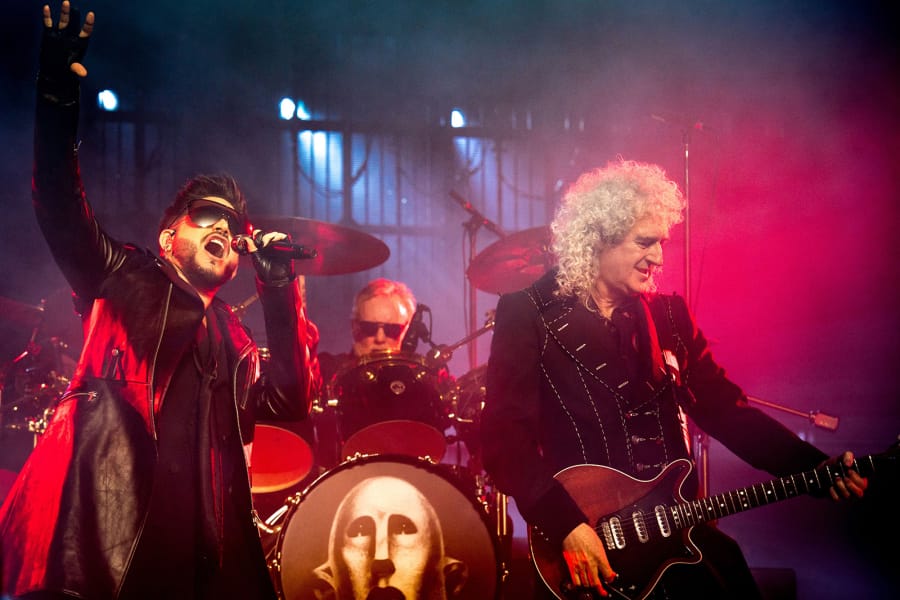Even though singer Freddie Mercury is here only in spirit — but what a holy spirit — Queen is bigger than ever in 2019.
I could provide numerical proof of the band’s ascension to new heights 28 years after Mercury’s death: Queen sold more albums in North America than any artist in the first half of 2019, and the original 1975 clip for “Bohemian Rhapsody” just became the first pre-MTV music video to earn more than 1 billion views on YouTube.
Even better, though, here’s a personal anecdote: My 8-year-old daughter and her friends know way more Queen songs than I did when I was 8, which was in 1981, right at the apex of the British quartet’s heyday.
I was already a rabid rock fan then, too. I knew countless Led Zeppelin, Kiss and AC/DC songs but probably could’ve sung you only the “Flash Gordon” theme and two other Queen songs: “Another One Bites the Dust” and “We Will Rock You”/”We Are the Champions” (technically three tunes, but KQRS played the latter two as one track).
Of course, the reason for this posthumous mega-boost is the movie based on Mercury’s life, “Bohemian Rhapsody,” which took home four Oscars and $900 million in box office sales since its release last November. Capitalizing on its surprising success, the two remaining members, guitarist Brian May and drummer Roger Taylor, are making a victory lap with singer Adam Lambert on a worldwide tour.
Here’s a look back, charting all the ups and downs that led to Queen’s all-time high.
1. Less-than-killer start. The band’s first two albums were flops, and the third (“Sheer Heart Attack,” now a fan fave) became only a modest hit thanks to the bouncy single “Killer Queen.” U.S. sales were especially tepid going into their first tour here in 1974, opening for Mott the Hoople.
2. Operatic uptick. Fourth album “Night at the Opera” was the charm in 1975. The band’s experimentation with big sonic production and layered vocals led to the truly operatic single “Bohemian Rhapsody” and a compelling concept album. A successful 1976 U.S. tour included a memorable show at the old St. Paul Civic Center.
3. Champions at last. After packing sports arenas, the band delivered the sporty battle cry “We Will Rock You”/”We Are the Champions.” If the band had quit there, its members would have retired well off the royalties from those oft-cranked songs.
4. Not too jazzed. The rise of punk and metal in the late ’70s made Queen’s high-concept rock seem “elitist,” to paraphrase a Rolling Stone review of the 1978 album “Jazz.” Its singles failed to garner much U.S. radio play, including the now-revered “Don’t Stop Me Now.”
5. Back in the game. Seemingly unworried about maintaining their rock cred, in 1980 the quartet turned in the campy “Flash Gordon” soundtrack and the slick album “The Game,” which featured the full-on disco groover “Another One Bites the Dust” and the Elvis-flavored “Crazy Little Thing Called Love,” two of their biggest U.S. singles.
6. Breathing space. Already butting heads while making the 1982 album “Hot Space,” Queen’s members went on hiatus after its icy reception. Contrary to the movie, all of them worked on solo projects, not just Mercury. None saw much success, though.
7. Live Aid revival. The quartet was playing shows again before its rousing performance at Wembley Stadium for 1985’s two-continent mega-concert (another inaccuracy in last year’s film), but this truly was an unforgettable comeback moment.
8. Mercury’s decline. Another factual error in the biopic: The singer’s fatal AIDS diagnosis was actually revealed after Live Aid. Related or not — but understandable, if so — the albums that followed sagged creatively and commercially, especially 1989’s “The Miracle.” The band was at something of a low point when Mercury died in 1991.
9. Honored in the ’90s. The 1992 “Wayne’s World” movie was huge. Mike Myers and Dana Carvey lip-syncing/head-banging to “Bohemian Rhapsody” behind the wheel of a Pacer made the song an even bigger radio hit. More seriously, a 1992 Mercury tribute concert with George Michael, Elton John, David Bowie and Axl Rose reiterated his legacy as a singer. And the Queen/Bowie collaboration “Under Pressure” gained new popularity after Vanilla Ice sampled it for 1990’s “Ice Ice Baby.”



